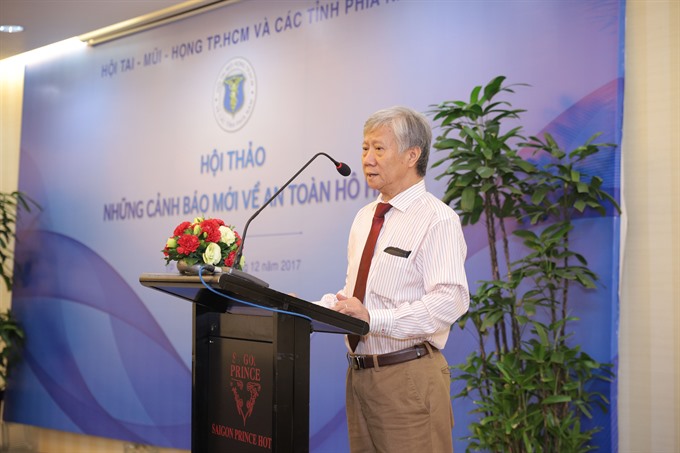 Society
Society

Việt Nam has an increasing incidence of respiratory diseases, with the World Health Organisation (WHO) repeatedly issuing warnings that it is among the most air-polluted countries in the Asia-Pacific region, according to health experts.
 |
| Assoc Prof Dr Đặng Xuân Hùng of the Ear Nose Throat Association of HCM City and Southern Provinces said at a conference in HCM City yesterday that people should adopt preventive methods against diseases. — VNS Photo |
HCM CITY — Việt Nam has an increasing incidence of respiratory diseases, with the World Health Organisation (WHO) repeatedly issuing warnings that it is among the most air-polluted countries in the Asia-Pacific region, according to health experts.
Dr Nguyễn Thanh Vũ, a lecturer at the School of Medicine at the Việt Nam National University-HCM City, said children were at high risk from air pollution, which has a long-term effect on their health, causing pneumonia, diseases relating to their ears, nose and throat, and asthma.
He was speaking at a conference titled New Warning About Respiratory Safety yesterday held by the Ear Nose Throat Association of HCM City and Southern Provinces.
He cited a WHO report saying that two million children die globally due to acute respiratory infections, 60 per cent of them caused by polluted air.
Some 3-5 per cent of children’s congenital defects are caused by environmental pollution, the report added.
Vũ said Việt Nam had the highest prevalence of asthma among children aged 12-13 in Asia, and warned this would continue to increase.
HCM City’s paediatrics hospitals get many patients with respiratory diseases.
The best way to prevent the diseases is to reduce exposure to polluted air, he said.
People should keep the air and environment in their home clean, and everyone should wear masks when going out, he said.
Assoc Prof Dr Đặng Xuân Hùng of the ENT Association of HCM City and Southern Provinces said people should proactively adopt preventive methods against diseases.
Proper nutrition, physical activity and adequate consumption of water helps improve resistance, but when resistance is low, bacteria and viruses which are always present in body easily cause diseases, he added. — VNS




